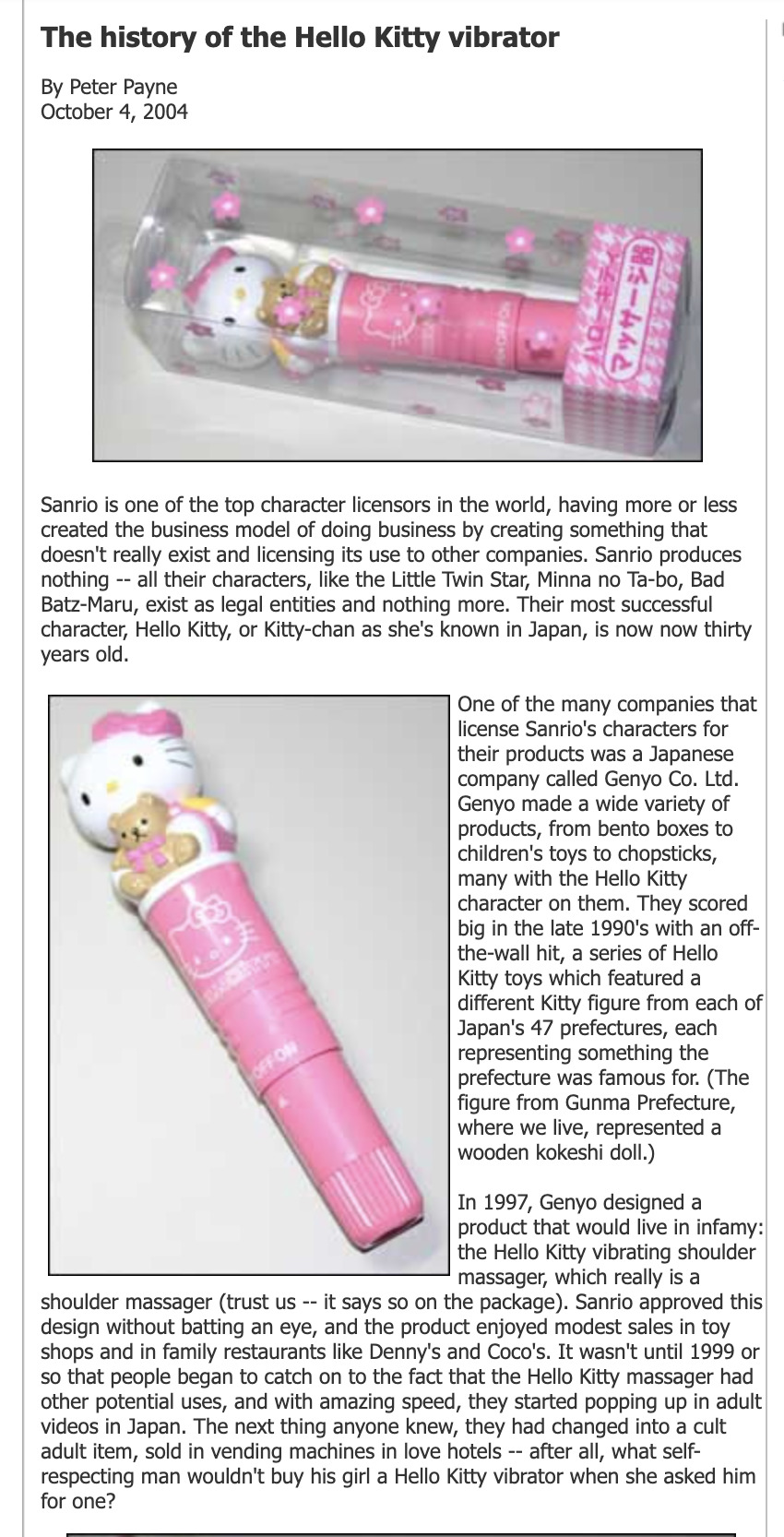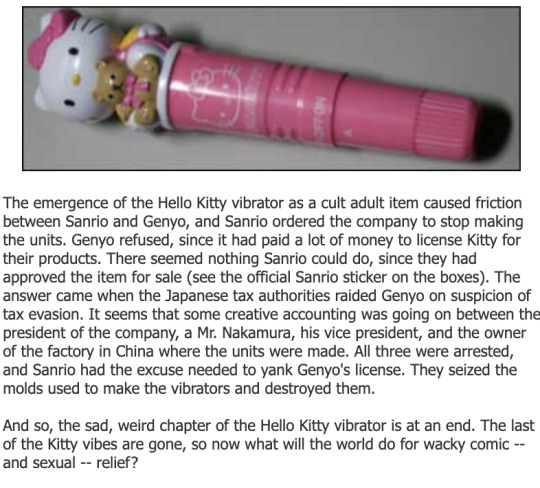#2004 Article
Text
ok. yeah sure


#fangoria saw x came today feeling normal about it#anyone else feeling normal#💽#zep having the time of his life hes ok. girl get up !#‘the ogs!’ oh dear. me talking about saw 2004#cary leigh im asking so nicely come back nd do something#ill take pictures of the full article thing later or tomorrow for anyone who wants to see it#saw 2004
157 notes
·
View notes
Text
If we for a moment forgo canon events and disagreements then I do wholeheartedly hope and believe that Todd and Neil get married during the '70s. It's a sunny afternoon on the perfect day in mid-spring and the light is at its thickest and most golden and Charlie got registered as an officiant just for this day and not everybody's present - Meeks can't make it from Switzerland on short notice, but they get a photo of him and prop it up on the coffee table at the perfect angle to see. Neil keeps wondering if he's going to get the pre-wedding jitters and does end up pacing around the living room early in the morning, but it's less cold feet and more impatience. (Turns out it's kind of hard to get cold feet when your almost-husband is sitting drowsily on the couch to keep you company and he keeps almost nodding off and you keep remembering all the ways in which you love him.) Ginny barges in at noon with hairspray and a sewing kit and insists on making bouquets with shitty grocery store flowers for both of them and Todd's suit ends up with a hastily added elbow patch and Neil's tie doesn't match his pocket square, because one's from Cameron and the other's from Knox. (Something borrowed, something blue...) It's perfect. In the end they go out on the balcony and Charlie's wearing this really tacky priest outfit, just really shitty fabric so that he's probably sweating bullets, and the collar's come untucked, and at the last moment Chris shrieks, "You forgot your bouquets!" and throws one with such good aim it hits Todd in the face. But they get through the vows and both of them only cry a little, because Cameron cries enough for all of them combined, and then that's it - over - and married. And as Charlie beams and says they can kiss there's a well-timed shower of rice from the balcony above, and congratulations, from some upstairs neighbours and well-wishers. Pitts catches the kiss on his expensive video camera and he also catches the cheering, which is so loud that, four blocks away, a lone man packing up his street food van pauses in closing boxes and thinks that there must be a party going on. He's right. And at the end of the night when the last loved one leaves and shuts the door gently behind them to not disturb the newlyweds lying together on the couch, silent with happiness, it's still perfect. At that moment it doesn't matter that there is no piece of paper, or no registry office, or that if Todd has an accident Neil might not be able to visit him in the hospital room. There will be tears for those things, but they come later. For now they're married. The beautiful thing never changes.
#reader i will freely admit - i HAVE spent all of today reading articles about the 2004 San Francisco Winter of Love.#and i HAVE spent all of today crying about it in intermittent bursts. you would too#anderperry#dead poets society#todd anderson.#neil perry#dead poets society fanfic#dead poets society fanfiction#anderperry fanfic#anderperry fic#tristan writes#i guess. this got away from me#also. go listen to vienna teng's song about this - city hall - right now
80 notes
·
View notes
Text

Not satisfied with this but :/ Sanxingdui-inspired Erlang Shen design brainstorm because I have a pet theory that the numerous blue-green skinned designs of him might be due in part to his Shu heritage (modern Sichuan area, where the sanxingdui artifacts were unearthed). Also his Heavenly Eye being interpreted as a third eye too but that's less so relevant to this design.
[ID: A bust portrait of Erlang Shen, with screenshots of sanxingdui artifacts and three green-blue-skinned adaptations of him beside him. He has light green-blue skin with black eyes and a golden third eye. His eyebrows extend up into a curlicue design and his two normal eyes have golden eye shadow. Atop his head is a helmet, the front of which echoes the design of several of the sanxingdui artifacts next to him. His head and helmet are colored and shaded, but his chest piece is only a sketch. Like his helmet, the chest piece has curlicue designs echoing sanxingdui artifacts. End ID]
EDIT: Link to more of my thoughts on this because I think it's an interesting connection even if I'm unsure how historically supported it is in reality :>
#my art#erlang shen#yang jian#chinese mythology#journey to the west#jttw#xiyouji#lotus lantern#pet theory as in id like for it to be true but im not too sure if im reaching/without basis#read an article that did link his heavenly eye being a vertical third eye to shu beliefs but it didnt CITE SOURCES ):<#blue in the Heavenly Kings kind of way and not blue in the yaoguai way btw#also unlike in 2004 LL sansheng mu and chenxiang would also be blue skinned#[points to my analysis post about blue erlangs] i think thats an important distinction to make thematically-wise#you might recognize sanxingdui artifacts because the two little guard dudes in 2019 nezha were based off them btw#this designs just for fun but i might be slipping more sanxingdui-inspired designs into Erlang's non-Upholder of Heavenly Will outfits now
238 notes
·
View notes
Photo





Premiere Magazine, May 2004
“This is the funniest thing, we've been asked this question so much lately. It was some silly thing that came out for Premiere Magazine. And it was a press release, probably ten years ago. Yeah, ten years ago and they just got a hold of it. And, you know, it's 'something to talk about.' It's just nice to be known by your name, I guess. You can call us "Olsen Twins," we don't get offended at all! It's just something people are having fun talking about.” —Ashley Olsen (Letterman, May 2004)
#mary kate and ashley#mary kate olsen#ashley olsen#scans#magazines#premiere magazine#stills#articles#quotes#Ashley Quotes#2004#2003 to 2004
33 notes
·
View notes
Note
my local librarian saw your saw article on letterboxd and thinks you’re a 60 year old hermit
the jokes on them rly cuz im actually a 21 year old hermit
#i can not be doing things or talking to ppl. all i know is weed coma and saw 2004#larry.txt#also it came out on my bday so it literally says im 20 in the article HAHA
17 notes
·
View notes
Text
[…] From 1967, and with mounting urgency and passion as the years passed, Edward Said was also an eloquent, ubiquitous commentator on the crisis in the Middle East and an advocate for the cause of the Palestinians. […]
Said was an unabashedly traditional humanist, “despite the scornful dismissal of the term by sophisticated post-modern critics.”
[…] This same deeply felt humanistic impulse put Said at odds with another occasional tic of engaged intellectuals, the enthusiastic endorsement of violence–usually at a safe distance and always at someone else’s expense. The “Professor of Terror,” as his enemies were wont to characterize Said, was in fact a consistent critic of political violence in all its forms. […] The weak, he wrote, should use means that render their oppressors uncomfortable–something that indiscriminate murder of civilians can never achieve.
[…] But attention, of course, is now being paid. An overwhelming majority of world opinion outside the United States sees the Palestinian tragedy today much as the Palestinians themselves see it. They are the natives of Israel, an indigenous community excluded from nationhood in its own homeland: dispossessed and expelled, illegally expropriated, confined to “bantustans,” denied many fundamental rights and exposed on a daily basis to injustice and violence. Today there is no longer the slightest pretense by well-informed Israelis that the Arabs left in 1948 of their own free will or at the behest of foreign despots, as we were once taught. Benny Morris, one of the leading Israeli scholars on the subject, recently reminded readers of the Israeli daily newspaper Ha’aretz that Israeli soldiers did not merely expel Palestinians in 1948-49, in an early, incomplete attempt at ethnic cleansing; they committed war crimes along the way, including the rape and murder of women and children. […]
Israel is utterly dependent on the United States for money, arms and diplomatic support. One or two states share common enemies with Israel; a handful of countries buy its weapons; a few others are its de facto accomplices in ignoring international treaties and secretly manufacturing nuclear weapons. But outside Washington, Israel has no friends–at the United Nations it cannot even count on the support of America’s staunchest allies. Despite the political and diplomatic incompetence of the PLO (well documented in Said’s writings); despite the manifest shortcomings of the Arab world at large (“lingering outside the main march of humanity”); despite Israel’s own sophisticated efforts to publicize its case, the Jewish state today is widely regarded as a–the–leading threat to world peace. After thirty-seven years of military occupation, Israel has gained nothing in security. It has lost everything in domestic civility and international respectability, and it has forfeited the moral high ground forever. […]
The real impediment to new thinking in the Middle East, in Edward Said’s view, was not Arafat, or Sharon, or even the suicide bombers or the ultras of the settlements. It was the United States. The one place where official Israeli propaganda has succeeded beyond measure, and where Palestinian propaganda has utterly failed, is in America. […]
That is why Said insists in these essays upon the need for Palestinians to bring their case to the American public rather than just, as he puts it, imploring the American President to “give” them a state. American public opinion matters, and Said despaired of the uninformed anti-Americanism of Arab intellectuals and students: “It is not acceptable to sit in Beirut or Cairo meeting halls and denounce American imperialism (or Zionist colonialism for that matter) without a whit of understanding that these are complex societies not always truly represented by their governments’ stupid or cruel policies.” But as an American he was frustrated above all at his own country’s political myopia: Only America can break the murderous deadlock in the Middle East, but “what the U.S. refuses to see clearly it can hardly hope to remedy.”
Whether the United States will awaken to its responsibilities and opportunities remains unclear. It will certainly not do so unless we engage a debate about Israel and the Palestinians that many people would prefer to avoid, even at the cost of isolating America–with Israel–from the rest of the world.
— Tony Judt, The Rootless Cosmopolitan, 2004
(I really recommend reading the whole article)
8 notes
·
View notes
Text
the struggles of hunting down a recording of a radio show that aired in another continent when you were only 10 years old
#why is this so challenging#why are there like no recordings anywhere#i know it's real; enough scholarly articles have cited it#i even found the production house website!#but not the bloody audio#i will even PAY FOR IT#bbc i even found the bloody radio times listings from when it aired on radio 4 i know it exists#i know this is such a silly thing to get stressed about but like- on the flip side it's kind of annoying#people are saving films and books and songs out the wazoo but i want to save radio dramas too#and this one is (surprisingly) seemingly nowhere to be found#the pickwick papers#bbc radio#classic serial: the pickwick papers#bbc radio 4#2004#I'm a fully grown adult spending a restless night trying to hunt down something that may no longer exist
7 notes
·
View notes
Text

#jeff buckley#eternal life a jeff buckley retrospective#slant magazine#article#magazine article#sal cinquemani#barry walsh#july 30 2004#2004#july
28 notes
·
View notes
Text

2 notes
·
View notes
Photo

Fragment from “Art notes” column in Flagpole, 8 December 2004, mentioning Julian Koster
[source]
transcript:
ENDNOTES. Andy Cherewick has work up at Flicker again. His thick textural oil paintings are a favorite of Athens, for good reason. Noah Mendelson’s work was up all over town last month. If you somehow missed his energetic landscapes, check out his website, www.leafgallery.com. Kim Nyugen’s elegant collages were up at Borders during November. This month at Borders is Jacob Wenzka. And Julian Koster has drawings in the window at Thai of Athens.
3 notes
·
View notes
Text
a review of Rhys's live show Jekyll and Hyde 2030 from 2004
"Rubber faced and bendy limbed, Darby resembles a Spencer-era Michael Crawford, as much for his Seventies haircut as his nimble flexibility and ability to distort his features to fit any mood.
Darby employs his god-given talents to impressive effect, whether it be creating the grotesque staring face of the monster, a malfunctioning robot or a decrepit octogenarian in a flotation tank. He's got the vocal cords to match, too, conjuring up more-than serviceable impressions of everything from a helicopter to a Vietnam ambush from nowhere. This is a man who can recreate an entire flight to Mars using just a stool which is admittedly pretty much all the real British Beagle programme had to work with, too."
8 notes
·
View notes
Text
Britney Spears' mother, Lynne, forced the singer to annul her 55-hour marriage to childhood friend Jason Alexander back in 2004, claims divorce attorney Mark Goldberg.
The now-retired divorce attorney who advised Jason Alexander says that neither Britney nor Jason wanted the nuptials annulled, but were forced to do so by Lynne Spears and Britney's management team. Jason said it had been Britney's idea to get married, but it was suppose to be a secret that somehow got out.
"It was the mother interfering in and inserting herself into her daughter's life," said Goldberg. "She came to Las Vegas, threw Jason out, and got him a plane ticket home."
And Jason said he signed the annullment papers out of intimidation, and under false pretenses.
"They told me if I would sign the contracts - the annulment - they would let me and Britney continue our relationship, and if we felt the same way in six months, they give us a proper marriage," said Jason. "So I had no reason to believe otherwise. I thought that's what the truth was. They were allowing Britney [then 22] and I to still have phone communication."
He continued, "So we were talking every day and I still believed the story I was told."
But Jason said that exactly one month after signing the annulment, Britney's phone mysteriously stopped working.
"Jason was looking for advice," Goldberg said. "He was very emotional and upset. Jason was confused because he loved Britney but was very afraid of her mother and management. This wasn't a stranger she'd just picked up. They had known each other for years. The way Britney has been controlled has had a detrimental effect on her life and taken a toll, possibly leading to her very public breakdown in 2007."
1 note
·
View note
Photo








Seventeen Magazine, July 2004
The Olsens are making their own declaration of independence this month by Sarah Bernard
Ph: George Holz
Hair: Mark Townsend Makeup: Brigitte Reiss-Anderson
This is a big year for Mary-Kate and Ashley Olsen. Yes, they'll officially take the reins of Dualstar Entertainment, their billion-dollar film and merchandise company, when they turn 18 on June 13—and they'll be moving 3,000 miles away from home this fall to attend New York University. But what made headlines this spring was a comment the girls made about no longer wanting to be called "The Olsen Twins." From now on, they said, they wanted to be referred to by their full names. For two girls who have been marketed as a single brand ever since they famously shared the character of Michelle Tanner on Full House, that's a pretty big deal. (Even they can't tell who's who when they watch an old episode from the show's nine-year run.) With that one comment, Mary-Kate and Ashley proclaimed their independence: They've outgrown the twin act and are now carving out distinct identities. [p.97]
OP Note: The author did not bring this topic to their attention in the interview. They both debunked this on an episode of Letterman, which aired two months prior to the magazine hitting stands.
#mary kate and ashley#mary kate olsen#ashley olsen#articles#seventeen magazine#2004#quotes#ashley quotes#2003 to 2004#stills#low res gallery#seventeen magazine july 2004 gallery#photoshoot#mark townsend
20 notes
·
View notes
Text
“If buying isn’t owning, piracy isn’t stealing”

20 years ago, I got in a (friendly) public spat with Chris Anderson, who was then the editor in chief of Wired. I'd publicly noted my disappointment with glowing Wired reviews of DRM-encumbered digital devices, prompting Anderson to call me unrealistic for expecting the magazine to condemn gadgets for their DRM:
https://longtail.typepad.com/the_long_tail/2004/12/is_drm_evil.html
I replied in public, telling him that he'd misunderstood. This wasn't an issue of ideological purity – it was about good reviewing practice. Wired was telling readers to buy a product because it had features x, y and z, but at any time in the future, without warning, without recourse, the vendor could switch off any of those features:
https://memex.craphound.com/2004/12/29/cory-responds-to-wired-editor-on-drm/
I proposed that all Wired endorsements for DRM-encumbered products should come with this disclaimer:
WARNING: THIS DEVICE’S FEATURES ARE SUBJECT TO REVOCATION WITHOUT NOTICE, ACCORDING TO TERMS SET OUT IN SECRET NEGOTIATIONS. YOUR INVESTMENT IS CONTINGENT ON THE GOODWILL OF THE WORLD’S MOST PARANOID, TECHNOPHOBIC ENTERTAINMENT EXECS. THIS DEVICE AND DEVICES LIKE IT ARE TYPICALLY USED TO CHARGE YOU FOR THINGS YOU USED TO GET FOR FREE — BE SURE TO FACTOR IN THE PRICE OF BUYING ALL YOUR MEDIA OVER AND OVER AGAIN. AT NO TIME IN HISTORY HAS ANY ENTERTAINMENT COMPANY GOTTEN A SWEET DEAL LIKE THIS FROM THE ELECTRONICS PEOPLE, BUT THIS TIME THEY’RE GETTING A TOTAL WALK. HERE, PUT THIS IN YOUR MOUTH, IT’LL MUFFLE YOUR WHIMPERS.
Wired didn't take me up on this suggestion.
But I was right. The ability to change features, prices, and availability of things you've already paid for is a powerful temptation to corporations. Inkjet printers were always a sleazy business, but once these printers got directly connected to the internet, companies like HP started pushing out "security updates" that modified your printer to make it reject the third-party ink you'd paid for:
https://www.eff.org/deeplinks/2020/11/ink-stained-wretches-battle-soul-digital-freedom-taking-place-inside-your-printer
Now, this scam wouldn't work if you could just put things back the way they were before the "update," which is where the DRM comes in. A thicket of IP laws make reverse-engineering DRM-encumbered products into a felony. Combine always-on network access with indiscriminate criminalization of user modification, and the enshittification will follow, as surely as night follows day.
This is the root of all the right to repair shenanigans. Sure, companies withhold access to diagnostic codes and parts, but codes can be extracted and parts can be cloned. The real teeth in blocking repair comes from the law, not the tech. The company that makes McDonald's wildly unreliable McFlurry machines makes a fortune charging franchisees to fix these eternally broken appliances. When a third party threatened this racket by reverse-engineering the DRM that blocked independent repair, they got buried in legal threats:
https://pluralistic.net/2021/04/20/euthanize-rentier-enablers/#cold-war
Everybody loves this racket. In Poland, a team of security researchers at the OhMyHack conference just presented their teardown of the anti-repair features in NEWAG Impuls locomotives. NEWAG boobytrapped their trains to try and detect if they've been independently serviced, and to respond to any unauthorized repairs by bricking themselves:
https://mamot.fr/@[email protected]/111528162905209453
Poland is part of the EU, meaning that they are required to uphold the provisions of the 2001 EU Copyright Directive, including Article 6, which bans this kind of reverse-engineering. The researchers are planning to present their work again at the Chaos Communications Congress in Hamburg this month – Germany is also a party to the EUCD. The threat to researchers from presenting this work is real – but so is the threat to conferences that host them:
https://www.cnet.com/tech/services-and-software/researchers-face-legal-threats-over-sdmi-hack/
20 years ago, Chris Anderson told me that it was unrealistic to expect tech companies to refuse demands for DRM from the entertainment companies whose media they hoped to play. My argument – then and now – was that any tech company that sells you a gadget that can have its features revoked is defrauding you. You're paying for x, y and z – and if they are contractually required to remove x and y on demand, they are selling you something that you can't rely on, without making that clear to you.
But it's worse than that. When a tech company designs a device for remote, irreversible, nonconsensual downgrades, they invite both external and internal parties to demand those downgrades. Like Pavel Chekov says, a phaser on the bridge in Act I is going to go off by Act III. Selling a product that can be remotely, irreversibly, nonconsensually downgraded inevitably results in the worst person at the product-planning meeting proposing to do so. The fact that there are no penalties for doing so makes it impossible for the better people in that meeting to win the ensuing argument, leading to the moral injury of seeing a product you care about reduced to a pile of shit:
https://pluralistic.net/2023/11/25/moral-injury/#enshittification
But even if everyone at that table is a swell egg who wouldn't dream of enshittifying the product, the existence of a remote, irreversible, nonconsensual downgrade feature makes the product vulnerable to external actors who will demand that it be used. Back in 2022, Adobe informed its customers that it had lost its deal to include Pantone colors in Photoshop, Illustrator and other "software as a service" packages. As a result, users would now have to start paying a monthly fee to see their own, completed images. Fail to pay the fee and all the Pantone-coded pixels in your artwork would just show up as black:
https://pluralistic.net/2022/10/28/fade-to-black/#trust-the-process
Adobe blamed this on Pantone, and there was lots of speculation about what had happened. Had Pantone jacked up its price to Adobe, so Adobe passed the price on to its users in the hopes of embarrassing Pantone? Who knows? Who can know? That's the point: you invested in Photoshop, you spent money and time creating images with it, but you have no way to know whether or how you'll be able to access those images in the future. Those terms can change at any time, and if you don't like it, you can go fuck yourself.
These companies are all run by CEOs who got their MBAs at Darth Vader University, where the first lesson is "I have altered the deal, pray I don't alter it further." Adobe chose to design its software so it would be vulnerable to this kind of demand, and then its customers paid for that choice. Sure, Pantone are dicks, but this is Adobe's fault. They stuck a KICK ME sign to your back, and Pantone obliged.
This keeps happening and it's gonna keep happening. Last week, Playstation owners who'd bought (or "bought") Warner TV shows got messages telling them that Warner had walked away from its deal to sell videos through the Playstation store, and so all the videos they'd paid for were going to be deleted forever. They wouldn't even get refunds (to be clear, refunds would also be bullshit – when I was a bookseller, I didn't get to break into your house and steal the books I'd sold you, not even if I left some cash on your kitchen table).
Sure, Warner is an unbelievably shitty company run by the single most guillotineable executive in all of Southern California, the loathsome David Zaslav, who oversaw the merger of Warner with Discovery. Zaslav is the creep who figured out that he could make more money cancelling completed movies and TV shows and taking a tax writeoff than he stood to make by releasing them:
https://aftermath.site/there-is-no-piracy-without-ownership
Imagine putting years of your life into making a program – showing up on set at 5AM and leaving your kids to get their own breakfast, performing stunts that could maim or kill you, working 16-hour days during the acute phase of the covid pandemic and driving home in the night, only to have this absolute turd of a man delete the program before anyone could see it, forever, to get a minor tax advantage. Talk about moral injury!
But without Sony's complicity in designing a remote, irreversible, nonconsensual downgrade feature into the Playstation, Zaslav's war on art and creative workers would be limited to material that hadn't been released yet. Thanks to Sony's awful choices, David Zaslav can break into your house, steal your movies – and he doesn't even have to leave a twenty on your kitchen table.
The point here – the point I made 20 years ago to Chris Anderson – is that this is the foreseeable, inevitable result of designing devices for remote, irreversible, nonconsensual downgrades. Anyone who was paying attention should have figured that out in the GW Bush administration. Anyone who does this today? Absolute flaming garbage.
Sure, Zaslav deserves to be staked out over an anthill and slathered in high-fructose corn syrup. But save the next anthill for the Sony exec who shipped a product that would let Zaslav come into your home and rob you. That piece of shit knew what they were doing and they did it anyway. Fuck them. Sideways. With a brick.
Meanwhile, the studios keep making the case for stealing movies rather than paying for them. As Tyler James Hill wrote: "If buying isn't owning, piracy isn't stealing":
https://bsky.app/profile/tylerjameshill.bsky.social/post/3kflw2lvam42n

If you'd like an essay-formatted version of this post to read or share, here's a link to it on pluralistic.net, my surveillance-free, ad-free, tracker-free blog:
https://pluralistic.net/2023/12/08/playstationed/#tyler-james-hill

Image:
Alan Levine (modified)
https://pxhere.com/en/photo/218986
CC BY 2.0
https://creativecommons.org/licenses/by/2.0/
#pluralistic#playstation#sony#copyright#copyfight#drm#monopoly#enshittification#batgirl#road runner#financiazation#the end of ownership#ip
23K notes
·
View notes
Text
Mentions: Me in British Forces Sixth-Sense Newspaper 29th January 2004 Special Edition Article and Photos


Original full two-page spread special in the British Forces Sixth-Sense Newspapers 29th January 2004 special article. The article is about the British children in Germany who have done great deeds for other people while we suffer with our own health and personal issues. Photos and Newspaper Article by Forces News.
#warrenwoodhouse#about#mentions#featured#newspaper articles#sixth-sense newspapers 29th january 2004#sixth-sense newspapers#2004#forces news#british forces news
0 notes
Text


I found myself having, not exactly an argument recently, but a highly opinionated conversation with someone who did not believe my assertion that once upon a time there were official Hello Kitty vibrators. With the aid of the Wayback Machine, I found this article, and thought the world at large might enjoy it too...


Here's the text of the article:
The history of the Hello Kitty vibrator
By Peter Payne
October 4, 2004
Sanrio is one of the top character licensors in the world, having more or less created the business model of doing business by creating something that doesn't really exist and licensing its use to other companies. Sanrio produces nothing -- all their characters, like the Little Twin Star, Minna no Ta-bo, Bad Batz-Maru, exist as legal entities and nothing more. Their most successful character, Hello Kitty, or Kitty-chan as she's known in Japan, is now now thirty years old.
One of the many companies that license Sanrio's characters for their products was a Japanese company called Genyo Co. Ltd. Genyo made a wide variety of products, from bento boxes to children's toys to chopsticks, many with the Hello Kitty character on them. They scored big in the late 1990's with an off-the-wall hit, a series of Hello Kitty toys which featured a different Kitty figure from each of Japan's 47 prefectures, each representing something the prefecture was famous for. (The figure from Gunma Prefecture, where we live, represented a wooden kokeshi doll.)
In 1997, Genyo designed a product that would live in infamy: the Hello Kitty vibrating shoulder massager, which really is a shoulder massager (trust us -- it says so on the package). Sanrio approved this design without batting an eye, and the product enjoyed modest sales in toy shops and in family restaurants like Denny's and Coco's. It wasn't until 1999 or so that people began to catch on to the fact that the Hello Kitty massager had other potential uses, and with amazing speed, they started popping up in adult videos in Japan. The next thing anyone knew, they had changed into a cult adult item, sold in vending machines in love hotels -- after all, what self-respecting man wouldn't buy his girl a Hello Kitty vibrator when she asked him for one?
The emergence of the Hello Kitty vibrator as a cult adult item caused friction between Sanrio and Genyo, and Sanrio ordered the company to stop making the units. Genyo refused, since it had paid a lot of money to license Kitty for their products. There seemed nothing Sanrio could do, since they had approved the item for sale (see the official Sanrio sticker on the boxes). The answer came when the Japanese tax authorities raided Genyo on suspicion of tax evasion. It seems that some creative accounting was going on between the president of the company, a Mr. Nakamura, his vice president, and the owner of the factory in China where the units were made. All three were arrested, and Sanrio had the excuse needed to yank Genyo's license. They seized the molds used to make the vibrators and destroyed them.
And so, the sad, weird chapter of the Hello Kitty vibrator is at an end. The last of the Kitty vibes are gone, so now what will the world do for wacky comic -- and sexual -- relief?
44K notes
·
View notes